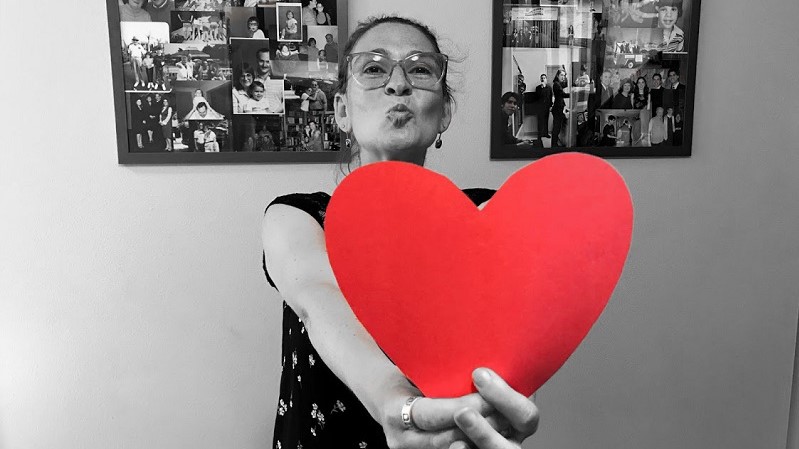It’s human nature to interact differently with different people. Chances are we’re going to be more tolerant of certain behaviors in some people and less in others. For example, if you cut me off on the highway, and then slow down in front of me, I might react somewhere between perturbed and enraged because I won’t have the context to understand you or your actions. On the other hand, if we know each other, and I know you’ve had a bad day, I’m likely to be more forgiving if you seem rude or checked out. This works in other ways too. While I might not think twice about reprimanding my children for a certain behavior we’ve talked about over and over again, I probably wouldn’t have the same reaction toward someone else’s child. So if the action is the same or similar, why is my reaction different?

The answer, simply, is love. In relationships with friends and loved ones, there’s a history and familiarity that comes with the territory. I’ll describe what this is like for me with my kids, but even for those of you who aren’t parents, you can probably relate in the way you treat your partner, parent, loved ones, or even pets.
Neither of my children slept through the night until well after they turned two years old. As frustrating as that was, and despite all our sleepless nights, I still love them. And like many children, mine are mostly great listeners at school and pay attention when others talk, but for me, their ears tune me out and can’t hear a simple direction. Often aggravating, but yes, I still love them. We tolerate and accept things in different ways because we love each other; that’s what a family does.
From this week’s Torah portion (and elsewhere in the Torah) we understand this to be part of our relationship with God too. Our parshah this week, Beha’alotcha, lands us with Aaron and Moses as they get into the daily requirements of their jobs. This section of text begins with instructions for the purification of the Levites as they do their holy work in the Tabernacle. We read about the first Passover sacrifice in the wilderness and how to celebrate Passover if we miss it the first time around. Then the text turns toward the Tabernacle, the Mishkan, and teaches us that God’s presence hovers over it in a cloud. Finally, Moses’s family – his father-in-law, wife, and children – return to join him and the rest of the Israelite nation on their journey through the wilderness.
As the Israelites are leaving Egypt and on this long journey, they complain. A lot. Moses gets to the end of his rope and finally goes to God and lets it all out. “Why did you do this to me?” he screams at God in chapter 11, verse 11 of Numbers. He goes on to complain that God made him take them out, and now God expects him to “carry them in my bosom like a nurse carries an infant.”
It’s an odd expression, but Ha-Emek Davar, a 19th century Russian commentator on Torah, suggests “even if the infant hits the nurse or soils her clothing, she does not reject the child.” Moses is essentially asking God, “They’re screaming at me, and hurting me, and breaking me, and I still have to love them?” God’s answer is an emphatic “Yes!” Yes, we have to love our family (in this case our people), and when those we love struggle, it is our job to support them. Yes, you need to show them unending love and encouragement, even when you feel beat down.
I began by admitting that we naturally alter our reactions and behavior depending on who we’re engaging with, but Parshat Beha’alotcha teaches us that our work as citizens of the world is to extend generosity, love, and compassion everywhere, especially when there is struggle or strife. You would want the same extended to you.



